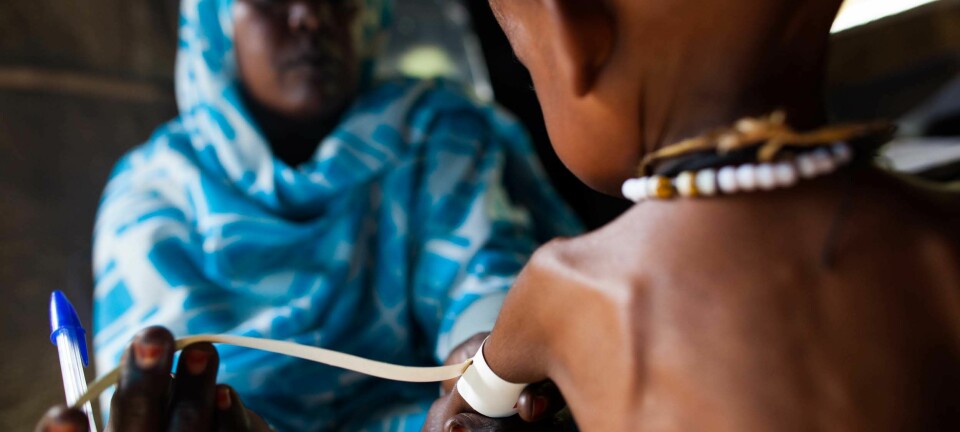
Baby's gut bacteria might predict obesity
A study of Norwegian children suggests that intestinal bacteria composition at age two correlates closely with weight gain later in childhood.
Childhood obesity has been a growing problem in recent decades. A lot of research in the field has still not provided a complete understanding of what is causing the obesity epidemic.
New study results reinforce the suspicion that intestinal bacteria may play a role.
Cecilie Dahl from the University of Oslo, and Merete Eggesbø from the Norwegian Institute of Public Health, and colleagues, have studied 165 Norwegian children from birth to age 12.
The researchers took regular samples of gut flora during the children's first two years. The mothers completed a questionnaire on various lifestyle factors and provided stool samples shortly after delivery.
In the years that followed, researchers recorded the children's weight development.
A predictore for overweight
Their results show that the composition of gut bacteria in early childhood appears to coincide with the children's body mass index (BMI) at 12 years old.
Certain patterns in the bacterial flora at age two were highly predictive of the child becoming overweight or obese later on.
The bacterial groups that were characteristic of this pattern were also present in mothers who were overweight or obese, or who had gained a lot of weight during pregnancy.
Interestingly, the affected children did not yet have a higher BMI than their peers when the tests were taken at age two.
This means that it may be possible to use stool samples to identify at risk children, which would provide an opportunity to prevent children becoming overweight in advance.
How to achieve this, is another matter.
May reflect lifestyle
Scientists still do not know what role bacteria play in people's risk of becoming overweight.
It may be that the intestinal flora simply reflect the lifestyle of the home a child grows up in. We know for example that our diet affects our gut flora, in which case a family can make lifestyle changes before the child develops obesity.
On the other hand, the bacteria themselves may be affecting body weight.
Previous research indicate that the intestinal flora contribute to shaping both the immune system and the metabolism of the body. Many of the gut flora that appeared to be associated with the children's BMI belong to bacterial groups known to have such effects.
The researchers also note that even the early samples of the baby's intestinal flora showed a certain link to the later BMI. These tests were taken while most of the children were receiving breast milk only.
Research points to gut flora
More research is needed before we fully understand the correlation between gut flora and weight development.
The results of several other studies indicate that intestinal flora can directly affect the risk of becoming overweight or developing obesity, but there is still a lot we don't know. What role does the transfer of bacteria play from mother to newborn baby? And is it possible to change the risk of becoming overweight by affecting the intestinal flora in early childhood?
Eggesbø and her colleagues recommend additional studies. Further investigation of the bacteria identified in this study may lead to a greater understanding of the mechanisms of obesity, they write in the new study.
----------------
Read more in the Norwegian version of this article at forskning.no




































